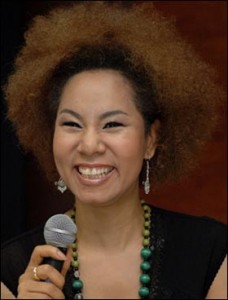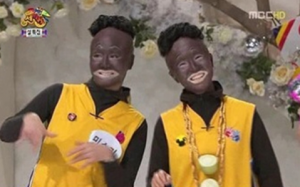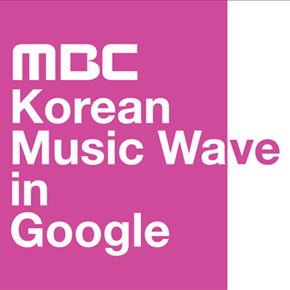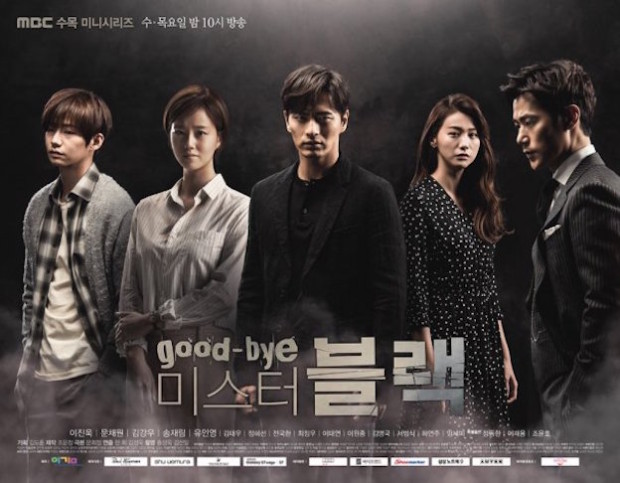 Let’s call a spade a spade: South Korea’s non-Korean residents, whether they be English teachers, soldiers, workers, students, or even Korean citizens who in some way do not fit the mold of the “typical,” do not always have the easiest time in the country. For a citizenry that prides itself on racial purity and unity, the addition of diversity and multiculturalism can be a bit too much to swallow. From an American perspective, that might seem anachronistic, but it is always worth remembering that South Korea’s social development does not always mirror its phenomenally rapid economic development. Many Koreans living outside of Seoul might never have the opportunity to meet, interact with, or even see a non-Korean in person; therefore, it makes sense (though it might not necessarily be politically correct) for such individuals to ground their opinions on non-Koreans in heuristic stereotypes derived from what they’ve seen or heard on media outlets.
Let’s call a spade a spade: South Korea’s non-Korean residents, whether they be English teachers, soldiers, workers, students, or even Korean citizens who in some way do not fit the mold of the “typical,” do not always have the easiest time in the country. For a citizenry that prides itself on racial purity and unity, the addition of diversity and multiculturalism can be a bit too much to swallow. From an American perspective, that might seem anachronistic, but it is always worth remembering that South Korea’s social development does not always mirror its phenomenally rapid economic development. Many Koreans living outside of Seoul might never have the opportunity to meet, interact with, or even see a non-Korean in person; therefore, it makes sense (though it might not necessarily be politically correct) for such individuals to ground their opinions on non-Koreans in heuristic stereotypes derived from what they’ve seen or heard on media outlets.
Which is why things like this news segment, which appeared on MBC, are especially problematic:
 It is unfortunately true that there have as of late been a number of incidents of sexual violence involving foreigners in South Korea; last year, an American soldier broke into a young Korean woman’s studio and violently raped her (he was sentenced to 10 years in prison), and another soldier was sentenced to six years in prison last month for a similar crime. Additionally, an extremely gruesome attempted rape and murder case in the Seoul suburb of Suwon provoked outrage when it was revealed that the perpetrator was an ethnic Korean immigrant from China.
It is unfortunately true that there have as of late been a number of incidents of sexual violence involving foreigners in South Korea; last year, an American soldier broke into a young Korean woman’s studio and violently raped her (he was sentenced to 10 years in prison), and another soldier was sentenced to six years in prison last month for a similar crime. Additionally, an extremely gruesome attempted rape and murder case in the Seoul suburb of Suwon provoked outrage when it was revealed that the perpetrator was an ethnic Korean immigrant from China.
These isolated incidents are very obviously not indicative of the way the entire foreign population of South Korea — a population that is every year growing exceedingly more diverse — behaves. But MBC seems to have taken the position that one (or a few) rotten apples spoil the whole bunch, and therefore all foreigners are horny and have come to South Korea exclusively to prey on its supply of delicate and fragile young ladies. And given the intense ethno-nationalism that is still incredibly prevalent in many facets of South Korean society, it is equally unfortunate that many Koreans likely saw and accepted the “facts” presented in this particular bit of reporting as universal truths.
Many, many people have already stepped up to comment on why, exactly, this “news” segment is utterly unacceptable, and I probably don’t have to state what many of our readers ought to already know: that boxing all non-Korean residents of South Korea as HIV-carrying impregnating machines is, quite frankly, completely inane. However, it is worth considering that South Korea — and particularly, MBC as a network — are more than just a little bit invested in reaching out to diverse potential consumers of Hallyu (Korean Wave) products. South Korea’s press loves to brag about how many people turned out to a flash mob in Canada, or how large the crowds were at a fan-signing event in Paris — but I guess it never occurred to them that the gross foreigners that are currently impregnating all of South Korea’s precious and virginal maidens are the same ones that might buy a SNSD album as well.
 The problem is this: as has been demonstrated time and time again, South Korea’s media seems unable to comprehend that they cannot have their cake and eat it, too. They cannot continue to paint non-Koreans as a pox on their society whilst simultaneously trying to bait them with shiny new dramas and international showcases. As a network, MBC is hugely invested in bringing K-pop and Korean entertainment to international audiences; they broadcast SM Town concerts, held a Hallyu showcase concert in Tokyo in 2011, and (here’s the kicker) just held the “Korean Music Wave Live in Google” showcase that was broadcast live on Youtube last month. That they are also guilty of some of the most offensive anti-foreigner broadcasts, including a blackface incident that took place last February, makes their efforts to sell Korean entertainment to non-Korean audiences reek of total hypocrisy. Non-Korean consumers are thinking, breathing people, and many should and will notice the disconnect between how MBC’s attempts to profit off of Hallyu and portray foreigners a the literal downfall of a pure Korean society. Segments like this are a turn-off for many people who might otherwise be completely accepting of South Korean cultural products.
The problem is this: as has been demonstrated time and time again, South Korea’s media seems unable to comprehend that they cannot have their cake and eat it, too. They cannot continue to paint non-Koreans as a pox on their society whilst simultaneously trying to bait them with shiny new dramas and international showcases. As a network, MBC is hugely invested in bringing K-pop and Korean entertainment to international audiences; they broadcast SM Town concerts, held a Hallyu showcase concert in Tokyo in 2011, and (here’s the kicker) just held the “Korean Music Wave Live in Google” showcase that was broadcast live on Youtube last month. That they are also guilty of some of the most offensive anti-foreigner broadcasts, including a blackface incident that took place last February, makes their efforts to sell Korean entertainment to non-Korean audiences reek of total hypocrisy. Non-Korean consumers are thinking, breathing people, and many should and will notice the disconnect between how MBC’s attempts to profit off of Hallyu and portray foreigners a the literal downfall of a pure Korean society. Segments like this are a turn-off for many people who might otherwise be completely accepting of South Korean cultural products.
 I get that MBC is not the easiest place to work these days; a union strike has seriously constrained content, and the fact that this egregiously stupid piece on “dangerous” foreigners managed to make it onto the airwaves probably speaks to how desperate the folks running the show over there are getting. But that isn’t an excuse, and quite frankly nothing can excuse the fact that in 2012, South Korea is still pulling this kind of racist and xenophobic garbage. As I type this, the South Korean city of Yeosu is playing host to the 2012 World Expo, an international fair that has brought thousands of non-Koreans to the peninsula to share in global hopes and dreams for the future; in 2018, the city of Pyongchang will host the Winter Olympics, an incredibly important and celebratory affirmation of global harmony and cultural diversity. How on earth does shoddy reporting about the evils of interracial dating jive with South Korea’s latest official efforts to embrace multiculturalism? Not at all.
I get that MBC is not the easiest place to work these days; a union strike has seriously constrained content, and the fact that this egregiously stupid piece on “dangerous” foreigners managed to make it onto the airwaves probably speaks to how desperate the folks running the show over there are getting. But that isn’t an excuse, and quite frankly nothing can excuse the fact that in 2012, South Korea is still pulling this kind of racist and xenophobic garbage. As I type this, the South Korean city of Yeosu is playing host to the 2012 World Expo, an international fair that has brought thousands of non-Koreans to the peninsula to share in global hopes and dreams for the future; in 2018, the city of Pyongchang will host the Winter Olympics, an incredibly important and celebratory affirmation of global harmony and cultural diversity. How on earth does shoddy reporting about the evils of interracial dating jive with South Korea’s latest official efforts to embrace multiculturalism? Not at all.
Look, South Korea. The internet has done all kinds of really wonderful things for you, especially when it comes to Hallyu. The internet has brought your biggest pop sensations, dramas, and movies to the fingertips of people around the world. But it would also be worthwhile to remember that the internet is also capable of broadcasting your most spectacular blunders to this same international community — and so it has. I understand that this segment was likely crafted for the domestic audience, but Hallyu has turned an increasing number of global eyes towards you. Don’t act like you didn’t want it — hasn’t that been the goal from the beginning? It is time to adjust your attitude and your media content to reflect the supposedly international outlook that you purport to have adopted.
What are your thoughts, Seoulmates?
(The Korea Herald, BBC, Nate, The Marmot’s Hole, MBC, DramaBeans)


